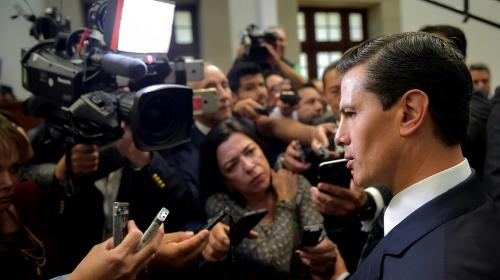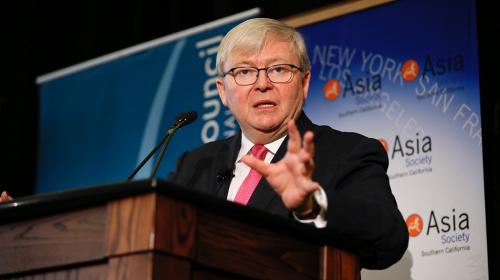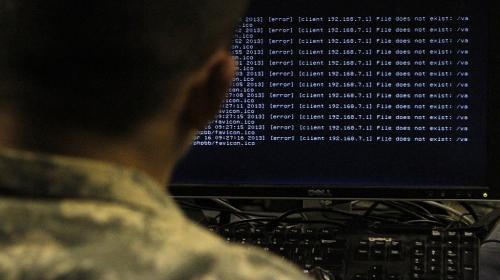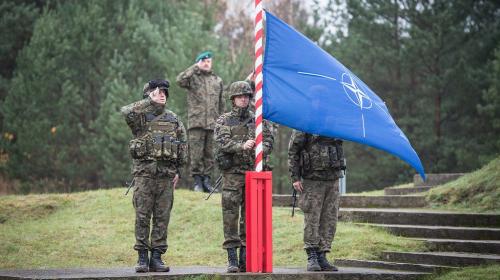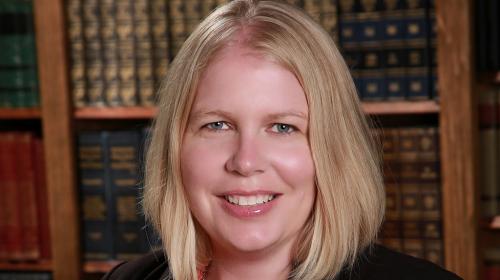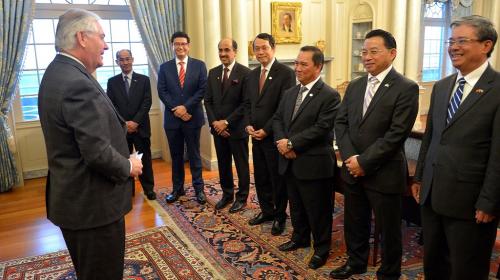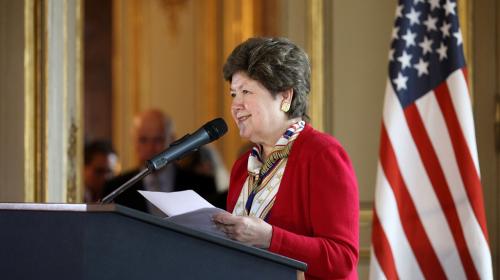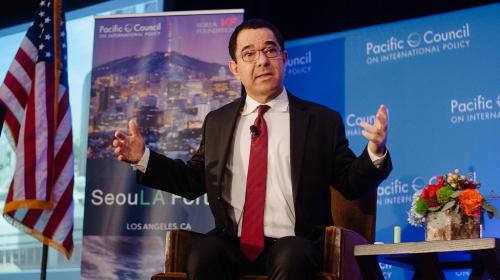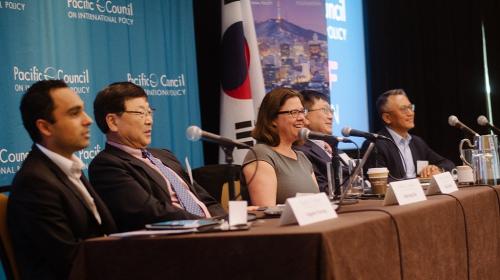The U.S.-Mexico relationship is the strongest it’s ever been, but its future is unpredictable, Dr. Pamela Starr and Mr. Seth Stodder told Pacific Council members in a Situation Briefing.
Former Australian prime minister Kevin Rudd laid out his concerns for the international community at an event presented by the Pacific Council and the Asia Society.
Dr. John Launchbury, director of DARPA's Information Innovation Office, discussed his concerns about cybersecurity as well as new technologies in the field with Pacific Council members.
U.S.-NATO relations are undergoing a period of major change, Dr. Gale Mattox and Ms. Elisabeth Braw told Pacific Council members.
Pacific Council member Brie Loskota was named one of the World Economic Forum’s Young Global Leaders (YGL) of 2017.
Today, March 22, is World Water Day. This year’s theme is wastewater, accompanied by a campaign called “Why waste water?” The goal is to educate the public about reducing and reusing wastewater.
The Trump administration is taking U.S. policy on Asia in a new and uncertain direction, Eric Altbach and Dr. Daniel Lynch told Pacific Council members.
Pacific Council director Ambassador Vilma Martínez has been selected to receive the World Trade Week 2017 Stanley T. Olafson Bronze Plaque Award, in recognition of her role in advancing global trade in the Southern California region.
Major industries such as energy and transportation will undergo a complete “disruption” by the year 2030, Tony Seba told guests of the Pacific Council and the Korea Foundation during his keynote address at the SeouLA Forum.
Bilateral cooperation on technology can boost the economies of the United States and South Korea, experts told guests of the Pacific Council and the Korea Foundation during the first panel at the SeouLA Forum.


